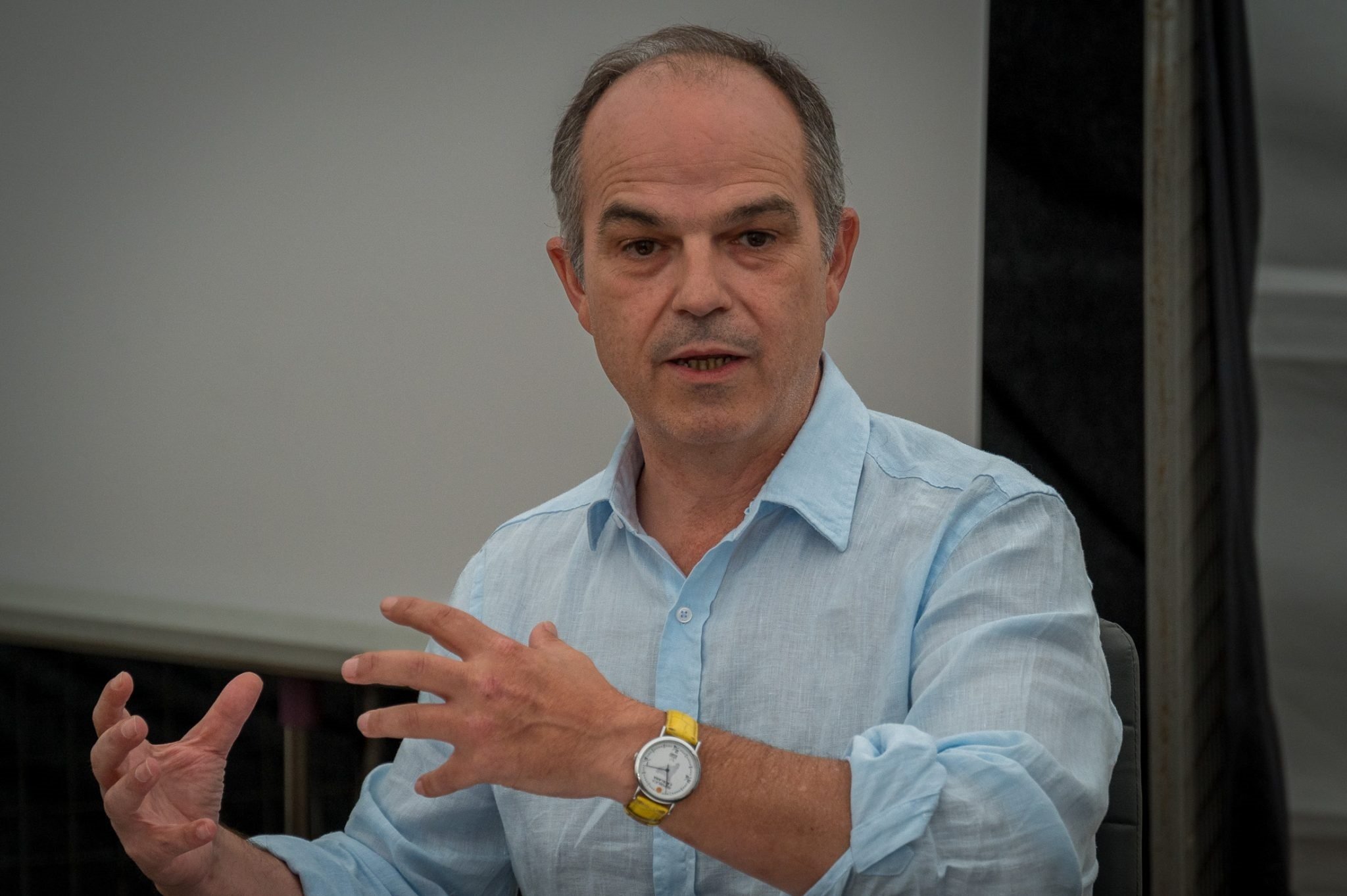The morning after another massive demonstration in the streets of Barcelona demanding independence and, as well, the resignation of a Catalan government that is not moving towards this goal, Jordi Turull, the general secretary of Together for Catalonia (Junts) spoke of the success of the call to the pro-independence public, which he defined as inclusive and transversal, since, otherwise, it would not have brought together 700,000 Catalan independence supporters, despite criticism from the Republican Left (ERC), which chose not to attend. "The people don't fail, we must not fail. We have to concentrate on the solutions, we can't go on like this", reflected the politician who was presidency minister during the Catalan government of Carles Puigdemont in an interview with radio station RAC1. And a necessary step to determining many of the solutions, according to Turull, would be a meeting of the strategic direction of the independence movement, a device agreed upon in the Catalan government agreement between ERC and Junts in May 2021.
"All the pro-independence actors, civil groups and parties need to sit down and talk. At the October 1st referendum, although each body had its legitimate strategy, we were able to find points of agreement. We call for the formation of a space for strategic direction", demanded the general secretary of Junts, regretting that so far the interaction has been through the media. For this meeting to work, however, he warned: "We must all be willing to move up or down a step to offer a horizon to the citizens", and he set as a basic point that the parties forget the calculator, and focus on finding a way to make effective the mandate of the 1st October referendum.
Diada must be a "turning point" for independentism
In the same vein, he regretted that although a series of meetings took place after reaching the 2021 agreement, one of the parties involved - without identifying which - decided that this was not the way to go and they stopped meeting: "What we are asking for is what is in the government agreement. It is essential that this space be reconstituted and after yesterday's demonstration it is urgent." But who should call it? First of all, Turull believes that the most important thing is to ensure that all pro-independence agents are there, but he argues: "If there is a government agreement between two political parties, we should both convene all the other groups. If the problem is who will call it, let's also reach agreement."
Following the "triumph" of the Catalan National Day demonstration, the general secretary of Junts assured that the pro-independence movement has not sunk to rock bottom at all, but he believes that the political parties, much criticized during the demonstration, must take note: "This has to be a turning point for the parties, to try to understand how we can improve to achieve independence and not move away from it".
"When we move as one, it works for us"
One of the major demands made on Sunday by the president of Òmnium, Xavier Antich, who did manage to bring together all parts of the independence movement in one event, unlike the ANC, was to change the political cycle and find new leadership within the movement. For Turull, however, it is more important not to personalize the struggle and to make decisions that bring Catalonia closer to independence: "What is clear is that when we move as one - I won't say together", he noted, not wanting to overuse his party's name - "it works for us". On the other hand, he concluded, "when we get out of order and move on to the reproaches, that's when we fail."

